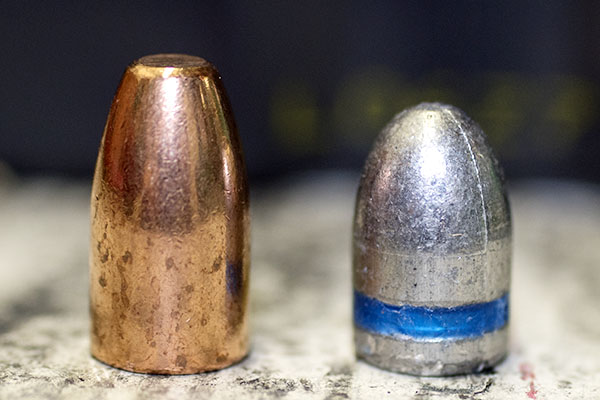
Well, ol’ Gresh sure stirred up a hornet’s nest with that flat track blog yesterday. We nearly ran out of bandwidth!
On to a more metric subject: 9mm ammo.
I started the PRK 10-day cooling off period (you know, the People’s Republik of Kalifornia) for my new SIG P226 a couple of days ago. Let me tell you, if anybody thinks they are going to outlaw guns in California, they need to think again. I had to wait an hour and a half at our local Turner’s Sporting Goods store just to start the process. There were five guys working the gun counter and customers were lined up five deep. There were a ton of folks buying and picking up guns. Trying to outlaw guns in America is a nonstarter, even here in looney leftwing California.
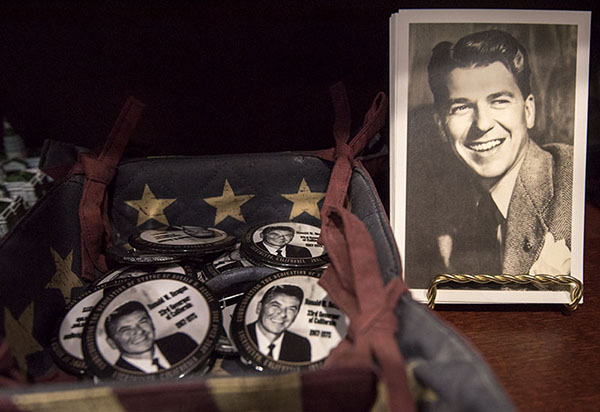
Okay, enough of the rant about my friends who know so much that just isn’t so, to borrow a phrase from one of the greats, and on to the subject of this blog: Getting ready for the 9mm accuracy load development program I spoke about a few days ago. Like I said earlier, my standard 9mm accuracy load for years has been 5.0 grains of Unique behind a 125-grain cast bullet, but as part of my New Year’s resolutions I am moving in two directions simultaneously: I’m expanding my horizons in the 9mm world and I’m reducing my waistline. The waistline story can wait for another day; today’s topic is the loads I’m crafting for inclusion in the 9mm Comparo.
I’m going to evaluate three or four different 9mm handguns and several different loads, and I’ve started reloading the ammo for that. The first four loads I’ve already crafted are with two different bullets I haven’t tried before: The 147-grain Speer truncated metal jacket bullet, and the 115-grain Armscor FMJ bullet. The 147-grain Speer bullets are really cool looking. If they shoot half as good as they look I’ll be driving tacks with my new SIG!
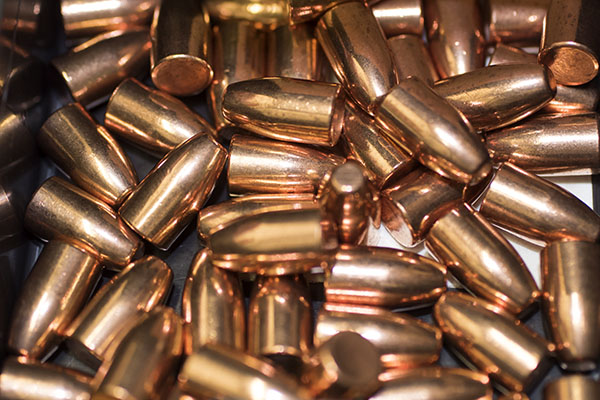
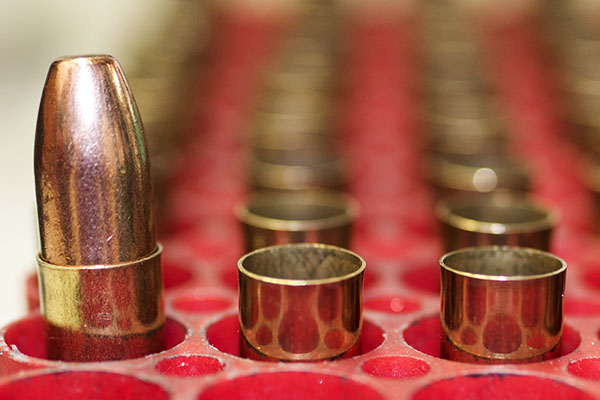
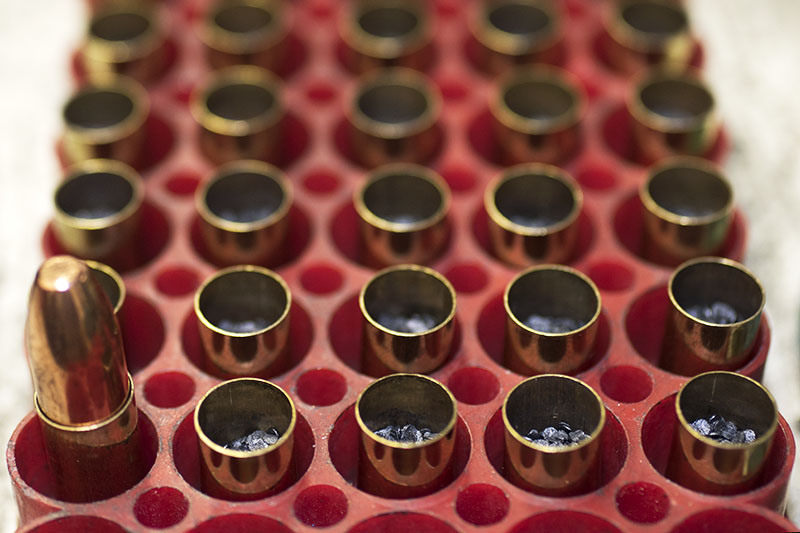
Seating the bullets is always cool, too. It’s where it all comes together.
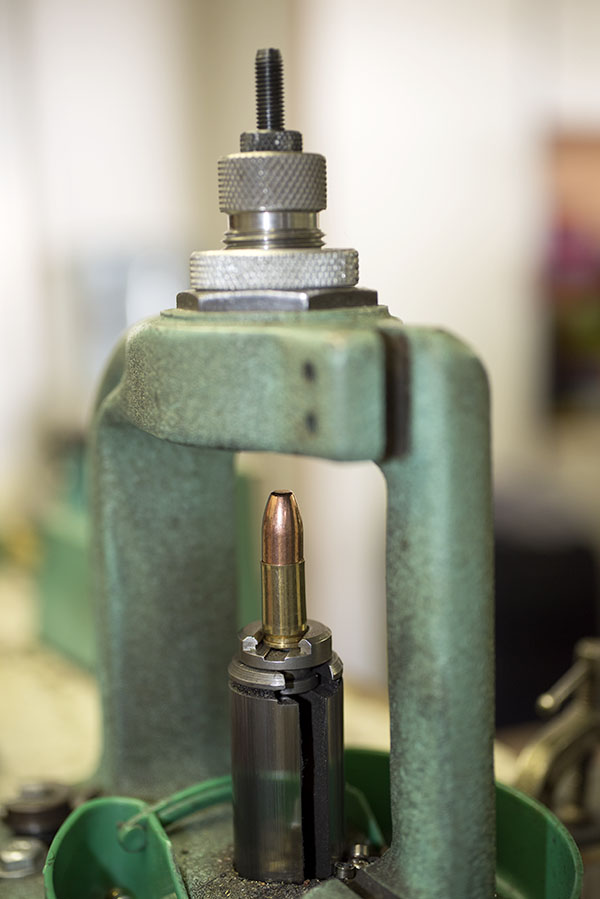
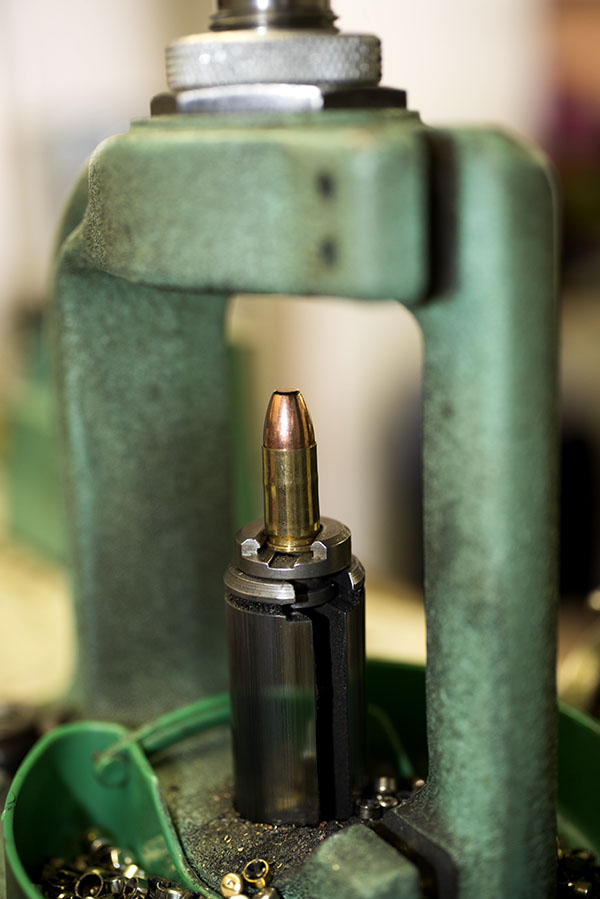
The finished rounds look great. Now the question is: Are they accurate? We’ll see. This is the first time I’ve tried a bullet this heavy in a 9mm.
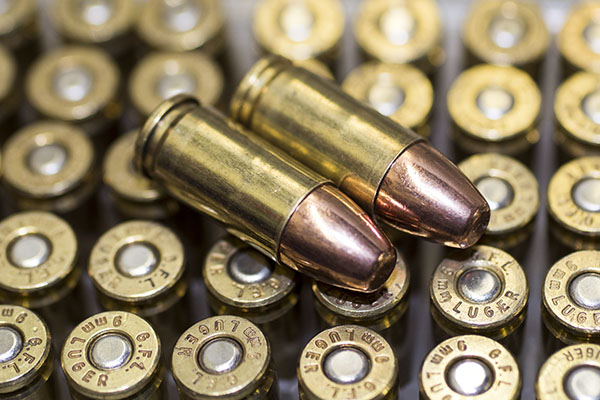
I seated the Speer bullets to the recommended depth for an overall cartridge length of 1.120 inches. I’m trying a couple of different propellant charges. I can experiment with seating depth to find the best accuracy later if this combo shows promise.
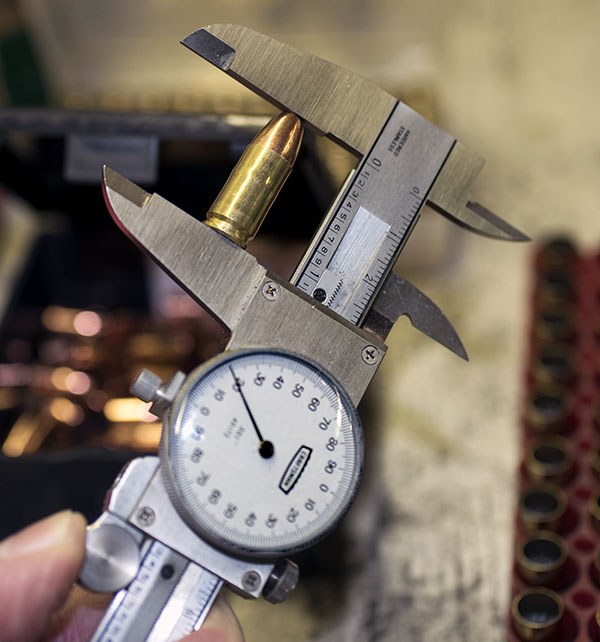
But wait: There’s more! I also picked up another bullet I had not tried yet, the Armscor 115 FMJ (full metal jacket) roundnose bullets. They are cool, too, and they were only $10 for a bag of 100 pills.
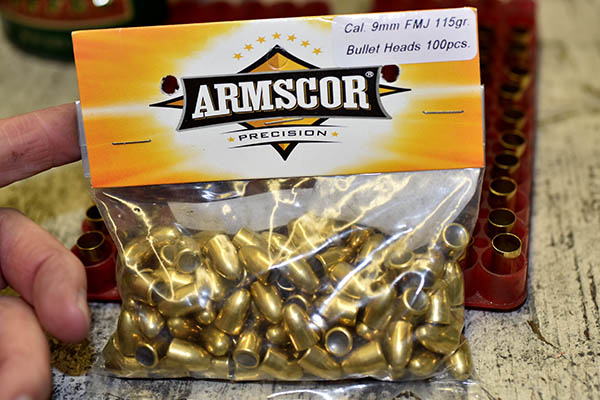
I’ve shot brass-jacketed FMJ bullets before, but that was in my .45 when I bought bulk Remington ammo just to get the brass cases (you know, so I could shoot them up and reload them later). These are good looking bullets, too.
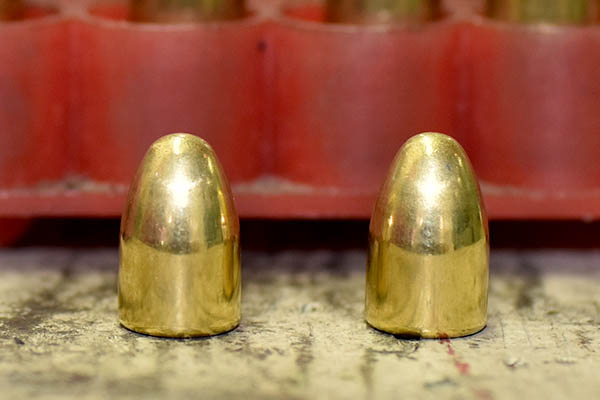
The charges listed in my loading manuals for a 115-grain jacketed bullet with Unique propellant seemed to hover around a max of 5.5 grains with a minimum of 4.8 grains, so I prepped two loads, one at 5.4 grains and one at 5.0 grains.
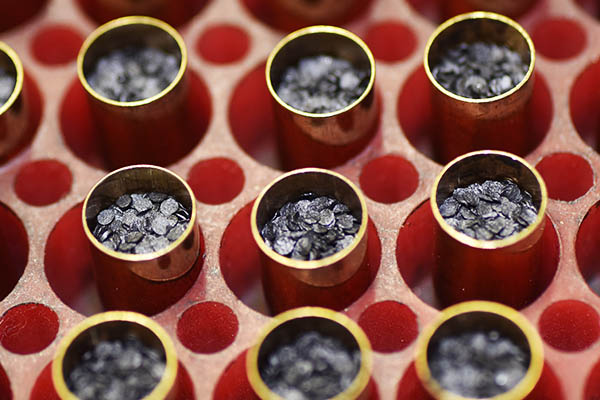
Here’s a cool shot of the finished Armscor load. I like the way these look. It’s like being the Lone Ranger, but with gold instead of silver bullets. Hi Yo SIG, away! (Cue in the William Tell Overture.)
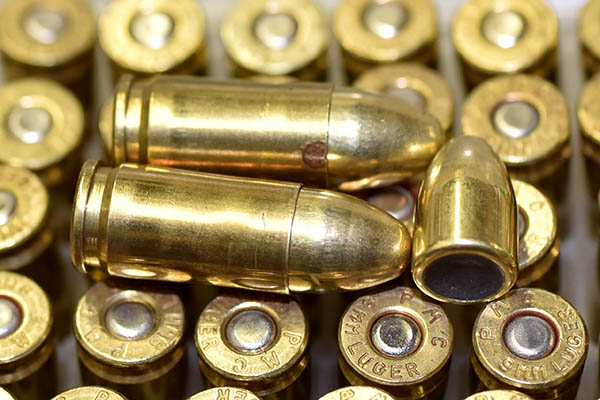
If you are not a reloader yet, you might want to think about getting into it. To me, reloading is as much fun as shooting. And if you want to learn how to do it, take a look at our series on reloading .45 ACP ammo on the Tales of the Gun page!
Hey, join the squad!

When you are compressing the load with the bullet press is there any chance it could go off?
It is a fairly common practice, Joe, and it is okay as long as you do not exceed the limits in a the reloading manual. Trail Boss is the only powder I’m aware of that should never be compressed, but compressing it won’t cause it to ignite (it will result in higher-than-acceptable chamber pressures).
Remember, the Socialists and Communists know what’s best for you in all things. You don’t need guns and they know best how to spend your money. The Road to Serfdom by F.A. Hayek should be required reading in all high schools and colleges.